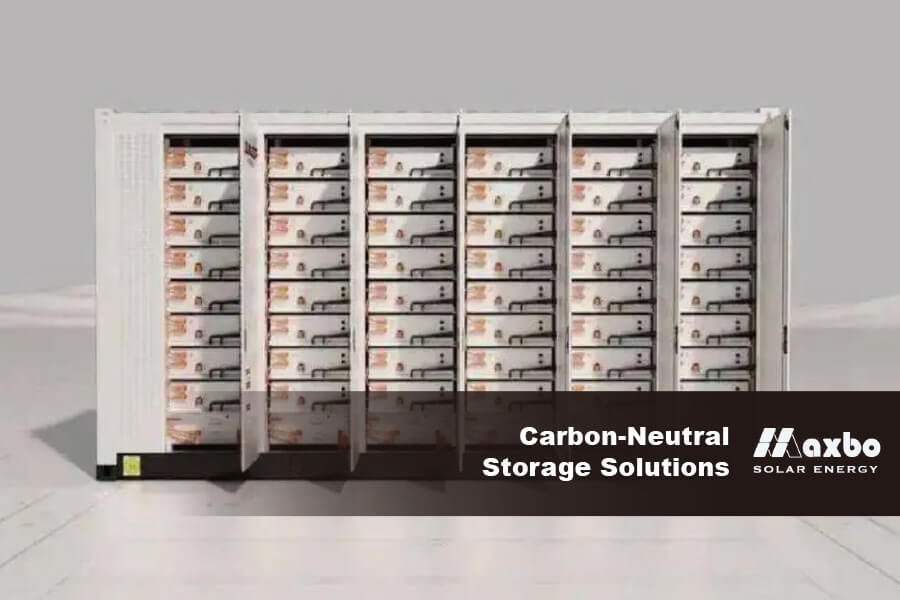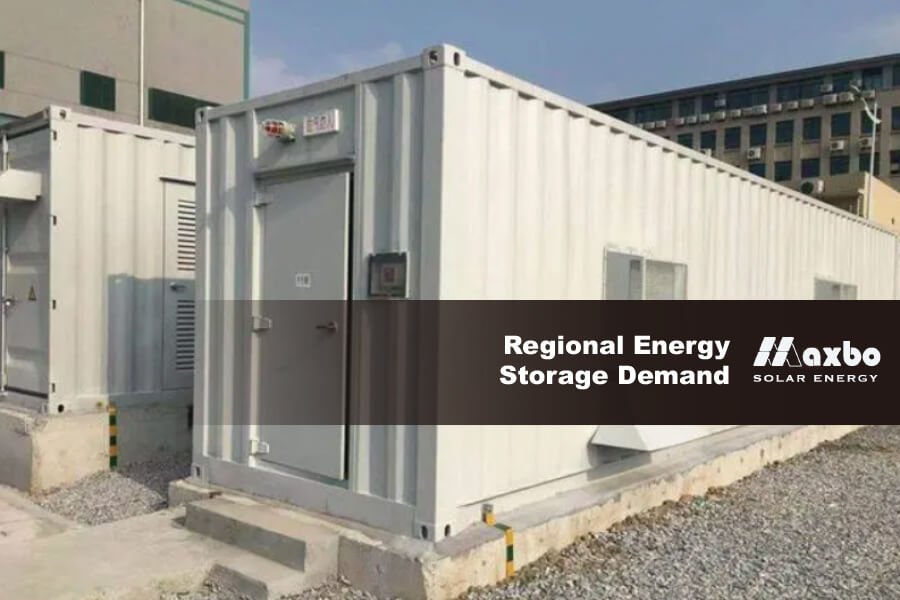Why Cost Comparison of Container Energy Storage Systems in the EU Matters
The adoption of renewable energy is accelerating across Europe, driven by the EU’s commitment to achieving carbon neutrality by 2050. As part of this energy revolution, container energy storage systems in the EU have emerged as a cornerstone for balancing supply and demand, optimizing renewable energy use, and ensuring grid stability. However, understanding the cost comparison of container energy storage systems in the EU is critical for businesses, governments, and energy providers aiming to make informed investments.
At Maxbo, we provide tailored, cost-efficient energy storage solutions that meet the EU’s stringent standards and diverse energy needs. This guide will walk you through every aspect of cost considerations, ensuring you gain the most value from your investment.
Table of Contents
ToggleBreaking Down the Costs of Container Energy Storage Systems in the EU
What Influences the Cost of Container Energy Storage Systems in the EU?
Understanding the cost structure of container energy storage systems in the EU requires an analysis of key components that drive pricing:
- Battery Technology:
Lithium-ion batteries dominate the market, accounting for 80–90% of installations due to their high energy density, long cycle life, and superior efficiency. However, they come with a higher upfront cost compared to lead-acid or flow batteries. - System Configuration:
The size of the system (measured in kWh) and its power output (measured in kW) significantly impact costs. Larger systems often achieve economies of scale, lowering the cost per kWh, while smaller systems offer modular flexibility. - Regulatory Compliance:
EU regulations demand strict adherence to safety and environmental standards. Compliance costs, including CE certifications and fire safety measures, are factored into the overall pricing. - Installation and Site Preparation:
Costs vary depending on site-specific factors such as urban versus rural location, required grid connections, and installation complexity. - Maintenance and Lifecycle Management:
High-quality systems, like those from Maxbo, include advanced monitoring features that reduce maintenance costs over the system’s lifespan.
A Detailed Cost Breakdown
| Component | Average Cost Contribution (%) | Details |
|---|---|---|
| Batteries (Lithium-Ion) | 50–60 | High energy density and long lifespan. |
| Power Conversion Systems | 15–20 | Includes inverters and control systems. |
| Installation and Labor | 10–15 | Includes site preparation and grid connection. |
| Monitoring and Software | 5–10 | AI-driven tools reduce operational expenses. |
| Miscellaneous | 5–10 | Permits, logistics, and fire safety systems. |
Regional Variations in Costs of Container Energy Storage Systems in the EU
Comparing Costs Across Key EU Markets
The cost comparison of container energy storage systems in the EU reveals significant regional variations:
- Western Europe (Germany, Netherlands):
Mature markets with established supply chains result in competitive pricing. Costs range from €450–€650 per kWh for lithium-ion systems. - Southern Europe (Spain, Italy):
Higher costs of €500–€750 per kWh are driven by higher installation and permitting expenses. - Northern Europe (Scandinavia):
Slightly higher prices due to lower population density and higher transportation costs. - Eastern Europe:
Emerging markets face higher costs of €600–€800 per kWh due to limited local manufacturing and higher logistics expenses.
Why Total Cost of Ownership (TCO) is Key
Beyond Upfront Costs
When evaluating the cost comparison of container energy storage systems in the EU, Total Cost of Ownership (TCO) provides a holistic perspective:
- Initial Investment: Equipment and installation expenses.
- Operational Savings: Load shifting, peak shaving, and grid-balancing services reduce electricity costs.
- Revenue Streams: Earnings from demand response programs and energy resale.
- System Longevity: High-quality systems from Maxbo offer 15–20 years of reliable performance.
Example: ROI from a 1 MWh System
A 1 MWh system installed at a logistics hub in France:
- 30% reduction in electricity costs.
- €150,000 annual savings from peak shaving.
- Achieved full ROI in 6 years.
Innovations Reducing Costs in the EU
Technological Advances
The cost of container energy storage systems in the EU is steadily declining due to:
- Battery Recycling and Second-Life Applications: Lowering end-of-life costs.
- AI-Driven Energy Management: Enhancing efficiency and reducing operational expenses.
- Next-Generation Batteries: Innovations like solid-state and sodium-ion batteries promise further cost reductions.
Maxbo: The Leader in Cost-Effective Energy Storage Solutions
Why Choose Maxbo for Container Energy Storage Systems?
At Maxbo, we specialize in delivering high-quality, cost-effective energy storage solutions that maximize value for European clients.
- Competitive Pricing: Advanced manufacturing processes ensure market-leading affordability.
- Tailored Solutions: From small-scale commercial projects to utility-scale systems, we customize every solution to your needs.
- Comprehensive Support: As a one-stop provider, we handle everything from design to maintenance.
Let’s Transform Your Energy Future
Are you ready to explore the cost advantages of container energy storage systems in the EU? Contact Maxbo today or visit our website at maxbo-solar.com for expert guidance and cutting-edge solutions tailored to your needs.
References
- International Renewable Energy Agency (IRENA): www.irena.org
- European Energy Storage Association: eesa.org
- Energy Storage News: energystoragenews.com
- Maxbo Official Website: maxbo-solar.com
Related Solutions
Related Blogs
Offshore Wind BESS Container Europe: Slash Curtailment, Smooth Grids, and Boost Profits for Your Wind Farm
行政2025-12-19T14:09:10+08:00December 18th, 2025|Categories: Design, News|
Agri-PV BESS Container EU: Unlock 1.04GW EU Subsidy & Double Farm Profits by 2026
行政2025-12-19T14:12:15+08:00December 18th, 2025|Categories: Design, News|
Let’s Make Things Happen
Add notice about your Privacy Policy here.
Let’s Make Things Happen
”The Maxbo team of sales consultants will continue to enrich our own expertise and experience to empower the development of sustainable energy with rigor.“
Maxbo CEO
You will need to provide: 1. the amount of electricity used. 2. the type and power of the load. 3. the electricity consumption habits (daytime/nighttime consumption). 4. the need to store electricity. 5. the need to feed electricity to the mains. 6. drawings or address of the installation site. 7. other special requirements
We can provide you with a quotation, a specification for all products, a circuit connection diagram and a diagram of the installation and placement of the PV panels. Any other requirements and adjustments needed can be discussed with our team.
We can meet the needs of most scenarios, whether your application is for domestic, commercial and industrial use, in remote areas, or for grid-level energy storage, we have experienced colleagues to design and deliver the right solution.
Add notice about your Privacy Policy here.
How much solar power do I need?
Most homes need 5–12kW, depending on your energy use and location.
Off-grid vs. grid-tied — what’s the difference?
Off-grid works without the utility grid; grid-tied lets you sell extra power back.
Do I need permits?
Usually yes — check local rules or ask us for guidance.
How long does a battery last?
Depends on size and load. A 5kWh battery can power a fridge for about 40 hours.
Can I upgrade my system later?
Yes, our systems are modular and easy to expand.
Does Maxbo offer installation?
We ship globally and connect customers with trusted local installers.










